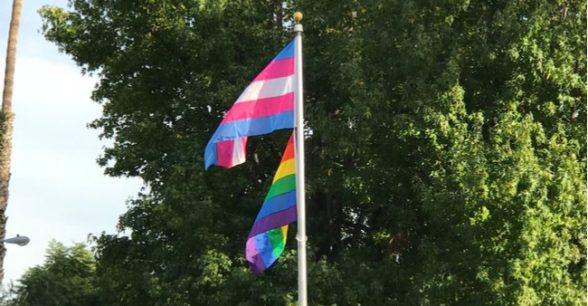#BoycottToSiri Highlights Why Non-Autistic People Must Stop Speaking Over the Autistic Community
The experience of being an autistic person isn’t universal, but there is one thing that we’ve all experienced—non-autistic (or “allistic”) people speaking over us.
A recent example of this is To Siri With Love, a memoir by Judith Newman about her experience as a neurotypical woman raising her 13-year-old autistic son Gus. Backlash swifty emerged on social media as autistic readers began raising issues with the book on social media, discussing its problematic themes, including forced sterilization and over-sharing of intimate details of Gus’s life. Autistic YouTuber Amythest Schaber launched the hashtag #BoycottToSiri.
This overwhelming response to the memoir from autistic people highlights the ongoing tension between the #ActuallyAutistic community and parents, loved ones, and experts who constantly position themselves as the only authority on autism. Newman’s work is a prime example of an allistic parent speaking for and over their autistic child, and since the controversy, the author has only doubled down in defense of the work.
This same issue of allistic parents talking for and over autistic children was raised with #CrippingTheMighty in 2015, and continues to be an issue between the autistic community and parents of autistic kids. “There are many, many autistics that are very capable of speaking for ourselves,” says Marie Porter, an autistic costumist, competitive cake artist, and author, “even non-verbal autistics, who are denied their voice even more than the rest of us.”
“They [allistic people] frame everything to do with us in the context of how it affects them, dominating autistic spaces and discussions with neurotypical perspectives and constantly pushing down our voices in order to further elevate theirs,” says Ryan, a 17-year-old autistic high schooler from Canada.
It’s important to note that there’s nothing inherently wrong with parents sharing their experiences raising their children, including their autistic children. As organizer and writer Lydia X. Z. Brown says, it’s all in the details of how they write it. If they’re writing from their own perspective in advocating for their child’s needs and not making assumptions about how their child feels, that’s one thing. What’s harmful, Lydia explains, is “writing about an experience that actually isn’t theirs, but putting it out there as if it is. It deliberately erases the autistic child’s experience, and presumes that they can’t have a voice of their own.”
“I think this is a fundamental issue that autistic people face in a microcosm: even some of the people who are ostensibly on our side and love us the most aren’t willing or able to challenge their own beliefs on the subject to actually see us,” says Sarah Kurchak, a freelance writer based in Toronto, Canada.
“If people in positions of power only read about autism from non-autistic perspectives, they will set policies that are damaging to autistic people,” says Brown.
The fact that media is dominated by these tropes is a real problem for actual autistic people. There’s not a lot of media that represents us; to this day, I haven’t connected with a piece of media with a canonically autistic character who I felt accurately reflected my experience. Most of what exists is filled with stereotypes and the same harmful themes that the autistic community has pointed out in To Siri With Love, like autistic people not being empathetic or creative, or positioning us as a burden to allistic and non-disabled family and friends.
This also doesn’t leave much room for autistic-created media. “Unless and until there are as many agented seats open for autistic writers as there are for agented allistic writers, these kinds of stories need to stop,” says Kaelan Rhywiol, an author and editor. “Many of us, autistic writers, we’re living well under the poverty line. So this is, for many of us, a matter of life and death.”
Allistic people who have autistic loved ones need to commit to doing better if they want to tell stories involving us. Because there are already so many harmful stereotypes and myths about the autistic experience, they need to actively work to unlearn ableism, practice radical empathy toward us, and understand us to meet us where we are.
About Rooted In Rights
Rooted in Rights exists to amplify the perspectives of the disability community. Blog posts and storyteller videos that we publish and content we re-share on social media do not necessarily reflect the opinions or values of Rooted in Rights nor indicate an endorsement of a program or service by Rooted in Rights. We respect and aim to reflect the diversity of opinions and experiences of the disability community. Rooted in Rights seeks to highlight discussions, not direct them. Learn more about Rooted In Rights




I wonder if your the reporter Judith layed out threats about on facebook.